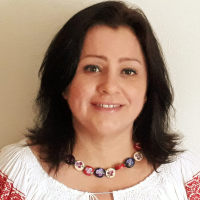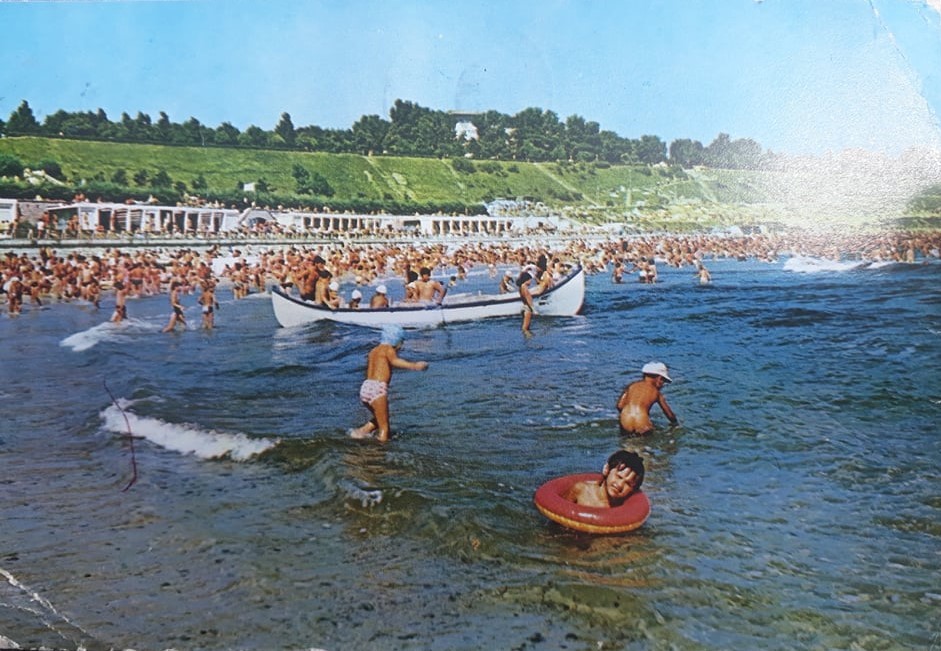Written by Mihaela Enache

Mihaela has worked in the education field for more than three decades, as a teacher in the early childhood and primary sectors, as well as a lecturer and a professional learning facilitator. At present, she is a PhD candidate at the University of Auckland. Having immigrated to New Zealand in 2001, she found a passion in culture and diversity studies, teacher identity and volunteer work in the community. She is actively involved with the Romanian community in Auckland, as a volunteer coordinator of both a traditional dancing group and a sewing group. Mihaela promotes first/native language acquisition and cultural identity/ies affirmation, as ways of implementing a culturally responsive pedagogy and creating a more accepting and inclusive society.
Although between the two world wars Romania had a relatively stable and flourishing economy and experienced progress, Bucharest being known as “the little Paris”, when the communist regime came to power all the values of the Romanian society changed. A regime of terror, lack of freedom and basic necessities for the majority of the population was installed in 1944 and lasted 45 years, until the Revolution of 1989. What follows is an account of how I understood and perceived foreigners who visited Romania, during my very brief encounters with people from overseas.
I spent my childhood in communist Romania in the ’70s and ’80, under Ceausescu’s dictatorship. I was born into a working-class family. During primary school, my brother and I were latchkey children, like most children those days, home alone while our parents were working hard for the benefit of the Party. We didn’t have the means to travel outside the borders, which were closed anyway. Apart from nomeklatura and people who were part of cultural dancing groups or choirs, not many Romanians had the opportunity to see what the West looked like. I had brief encounters with a few “foreigners” or “westerners” while walking on the big central boulevards in Bucharest or at the Black Sea resorts where we were spending our holidays. The difference between Them and Us was obvious on the street. My memories are more of a visual and olfactory nature. I could spot “them” from miles away: they were walking nonchalantly, smiling, laughing, in their colourful clothes, checking the beautiful architecture of the Little Paris, as Bucharest was called between the wars. As a child, I perceived a certain superiority of the human race in the way they were holding their heads up, walking straight and talking their language loudly, English, German, French, as if they really wanted to be noticed. There was something in the way they were holding their bodies, an inner confidence. After passing them on the street, my nostrils would be in heaven. Today I can explain that smell: the detergent they used for their clothes, the shampoo, the body wash, the perfume, all mixing in a heavenly concoction, lingering in my olfactory memory for ages. Luxury items we didn’t know existed. We wore grey, brown and black clothes, all the same, walked quickly, heads down, we were quiet, just a mass, with no distinctive qualities; we didn’t want to attract attention. As a child, my impression was that they looked so different that they could even be from another planet.
I also remember the holidays spent at the Black Sea, where people from Bulgaria, Poland, Czechoslovakia and Germany were selling cosmetics, like rose perfume, coffee, or clothes. I was perceiving them as superior, at least from a materialistic point of view, possibly since I was impressed by the merchandise. In my teenage years, I received a donation of clothes from a girl who passed away prematurely. She used to work at the American Embassy in Bucharest, and my mother knew her mother. After her passing, her mother gave me some of her beautifully coloured dresses, skirts and tops (one was a fluorescent pink, a colour I had never seen before), that I cherished and treasured many years in my adolescence. And again, the smell of the clothes I inherited made me feel like I was a little bit special, from another world, like them.
The difference between us and them started to disappear when I immigrated, when I could decide for myself who I was. The choices, including clothes and other everyday items, were far more varied, I could access everything I wanted and experience freedom in a very different way.


As always Mihaela your stories are evocative and beautifully written. You capture here something very tangible that many will be able to relate to.
Thank you, Esther. I have wonderful mentors.
Kia ora from Aotearoa New Zealand. Thank you Michaela for sharing such a deeply emotive and moving piece about your childhood. Having had the pleasure of meeting you to talk and share our love of making as art and research I feel like I have learnt just a little more about you. I look forward to seeing you again once lockdown is lifted and talking more about future writing and research collaborations
Thank you, Hinekura. We need to weave more stories together. Arohanui. Keep well.
This is such a great memory Michaela! There is also an interesting article written by Kathy Burrell titled ‘The enchantment of western things: children’s material encounters in late socialist Poland. There is a link here to the full-text free article: https://www.jstor.org/stable/23020846?seq=1#metadata_info_tab_contents She is also discussing the ‘allure of the West’ – all things that Western, and shows the still existing trajectories in people’s imaginaries and desires.
Thank you, Zsuzsa, for your guidance. Childhood memories are always a fascinating topic, especially when we use them to better understand the world we live in and hopefully make it a better place. Kathy’s article looks great, I’ll have a look.